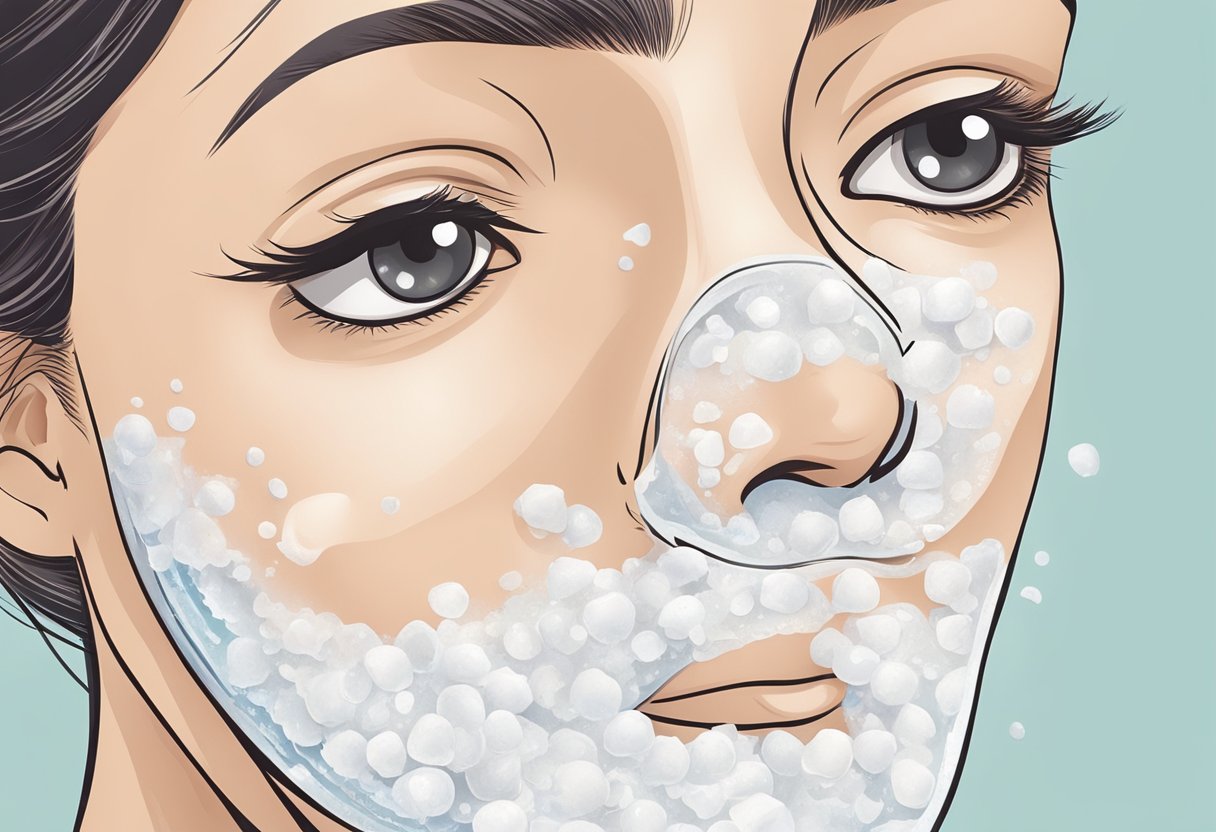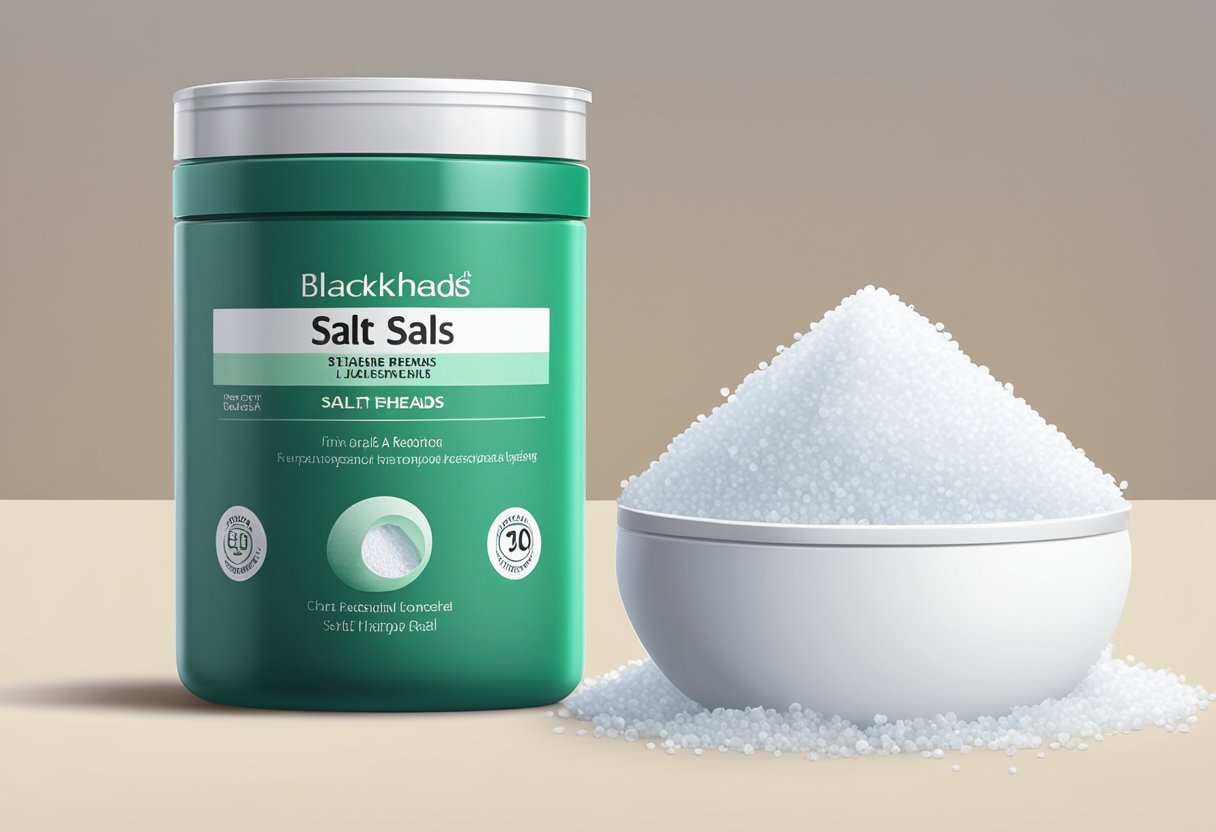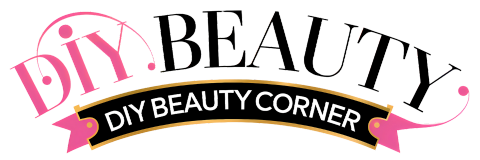Epsom salt, also known as magnesium sulfate, has been used for centuries as a natural remedy for various ailments. It is a popular ingredient in many beauty products, including those designed to treat blackheads. But what exactly does Epsom salt do to blackheads?

Blackheads are a common skin concern that can be caused by excess oil production, dead skin cells, and other impurities clogging the pores. Epsom salt is believed to help unclog pores by removing dead skin cells and excess oil. It is also thought to have anti-inflammatory properties that can help reduce redness and swelling associated with blackheads.
While there is limited scientific research on the specific effects of Epsom salt on blackheads, many people have reported positive results from using it as a part of their skincare routine. However, it is important to note that everyone’s skin is different, and what works for one person may not work for another. It is always best to consult with a dermatologist before trying any new skincare products or treatments.
Understanding Blackheads

Blackheads are a type of acne that occurs when hair follicles become clogged with dead skin cells, oil, and bacteria. They are called blackheads because the surface of the plug in the pore oxidizes and turns black. Blackheads are a common skin problem and can appear anywhere on the body, but they are most commonly found on the face, neck, chest, and back.
Blackheads are not caused by dirt, but rather by a buildup of oil and dead skin cells in the hair follicle. They are more common in people with oily skin and can be exacerbated by factors such as hormonal changes, stress, and certain medications.
While blackheads are not harmful, they can be unsightly and may lead to scarring or infection if not treated properly. There are many treatments available for blackheads, including topical medications, chemical peels, and microdermabrasion. Epsom salt is also a popular home remedy for blackheads, as it is believed to help unclog pores and exfoliate the skin.
It is important to note that while Epsom salt may be effective for some people, it is not a cure-all for blackheads and should be used in conjunction with other treatments for best results. Additionally, those with sensitive skin should be cautious when using Epsom salt, as it may cause irritation or dryness.
Epsom Salt Basics

Epsom salt, also known as magnesium sulfate, is a common household item that has been used for centuries as a natural remedy for various ailments. It is believed to have a variety of health benefits, including soothing sore muscles, reducing stress, and improving sleep.
When it comes to blackheads, Epsom salt is often recommended as a natural solution. Blackheads are a common skin problem that occurs when hair follicles become clogged with oil and dead skin cells. They are often found on the face, particularly on the nose and chin.
Epsom salt is thought to help unclog pores and reduce inflammation, making it an effective treatment for blackheads. It works by drawing out impurities from the skin and promoting circulation, which can help to improve overall skin health.
To use Epsom salt for blackheads, it is typically mixed with water to create a paste that can be applied directly to the affected area. The paste is then left on the skin for several minutes before being rinsed off with warm water.
Overall, Epsom salt is a safe and natural remedy that can be effective in treating blackheads. However, it is important to note that it may not work for everyone, and results may vary depending on the severity of the condition. As with any new treatment, it is recommended to speak with a healthcare professional before trying Epsom salt for blackheads.
The Effects of Epsom Salt on Blackheads

Blackheads are a common skin problem that occurs when hair follicles become clogged with dead skin cells and oil. Epsom salt has been used as a natural remedy for blackheads due to its exfoliating and antibacterial properties.
Exfoliation Properties
Epsom salt has a coarse texture that can help exfoliate the skin by removing dead skin cells and loosening blackheads. When mixed with an oil such as olive or almond oil, it can form a loose paste that can be applied to the affected area. This paste can help unclog pores, remove impurities and reduce the appearance of blackheads.
Antibacterial Benefits
Epsom salt has antibacterial properties that can help prevent the growth of bacteria on the skin. This can be especially beneficial for people with acne-prone skin, as bacteria can exacerbate acne and blackheads. By reducing the amount of bacteria on the skin, Epsom salt can help prevent the formation of new blackheads.
Magnesium Sulfate Action
Epsom salt is composed of magnesium sulfate, which has been shown to have anti-inflammatory properties. Inflammation can make blackheads worse, so by reducing inflammation, Epsom salt can help improve the appearance of blackheads. Additionally, magnesium sulfate can help with skin detoxification, which can also be beneficial for people with blackheads.
In summary, Epsom salt can be an effective natural remedy for blackheads due to its exfoliating, antibacterial, and anti-inflammatory properties. However, it is important to note that Epsom salt should not be used as a sole treatment for blackheads and should be used in conjunction with other skincare practices such as cleansing and moisturizing.
Application Methods for Epsom Salt

Epsom salt is a popular remedy for blackheads. There are several ways to use Epsom salt to treat blackheads, including direct application, Epsom salt soaks, and Epsom salt scrubs.
Direct Application
Direct application of Epsom salt is one of the easiest ways to use it to treat blackheads. To do this, mix a tablespoon of Epsom salt with a few drops of water to make a paste. Apply the paste to the affected area and leave it on for about 10 minutes. Rinse the area with warm water and pat it dry.
Epsom Salt Soaks
Epsom salt soaks are another effective way to treat blackheads. To do this, add a cup of Epsom salt to a warm bath and soak in it for about 15-20 minutes. The warm water will help open up the pores, and the Epsom salt will help to remove impurities from the skin.
Epsom Salt Scrubs
Epsom salt scrubs are a great way to exfoliate the skin and remove blackheads. To make a scrub, mix a tablespoon of Epsom salt with a tablespoon of olive oil or coconut oil. Gently massage the scrub onto the affected area for a few minutes, then rinse with warm water and pat dry.
It is important to note that while Epsom salt can be helpful in treating blackheads, it is not a cure-all. It is important to maintain good hygiene and use other skincare products to prevent blackheads from forming in the first place.
Precautions and Best Practices

Skin Type Considerations
Before using Epsom salt for blackheads, it is important to consider your skin type. Epsom salt is generally safe for all skin types, but those with sensitive skin may experience irritation or dryness. If you have sensitive skin, it is recommended to do a patch test before using Epsom salt on your face. Apply a small amount of Epsom salt paste on your wrist or behind your ear and wait for 24 hours to see if there is any reaction.
Frequency of Use
While Epsom salt can be effective in removing blackheads, it is important not to overuse it. Using Epsom salt too frequently can lead to dryness, irritation, and even damage to the skin barrier. It is recommended to use Epsom salt once or twice a week to avoid these issues.
Potential Side Effects
Although Epsom salt is generally considered safe, there are some potential side effects to be aware of. Some people may experience allergic reactions or irritation when using Epsom salt on their skin. If you experience any redness, itching, or swelling, discontinue use immediately and consult a dermatologist.
Additionally, Epsom salt should not be ingested. It is important to keep it away from children and pets to prevent accidental ingestion.
Overall, Epsom salt can be a helpful addition to your skincare routine when used properly. By considering your skin type, frequency of use, and potential side effects, you can safely use Epsom salt to remove blackheads and improve the appearance of your skin.
Alternative Blackhead Treatments

While Epsom salt can be a helpful ingredient in treating blackheads, there are also alternative treatments that can be effective. Here are a few options to consider:
1. Salicylic Acid
Salicylic acid is a common ingredient in many over-the-counter acne treatments. It works by breaking down the oil and dead skin cells that can clog pores and lead to blackheads. Salicylic acid can be found in face washes, toners, and spot treatments.
2. Retinoids
Retinoids are a class of vitamin A derivatives that can help to unclog pores and prevent the formation of blackheads. They work by increasing cell turnover and reducing the production of sebum, the oil that can contribute to blackheads. Retinoids are available in both prescription and over-the-counter forms.
3. Charcoal
Charcoal is a popular ingredient in many skincare products due to its ability to absorb impurities and toxins from the skin. Charcoal masks and cleansers can help to unclog pores and remove blackheads.
4. Exfoliation
Regular exfoliation can help to remove dead skin cells and prevent the buildup of oil and debris that can lead to blackheads. Physical exfoliants like scrubs and brushes can be effective, but they should be used with caution to avoid irritating the skin. Chemical exfoliants like alpha-hydroxy acids (AHAs) and beta-hydroxy acids (BHAs) can also be effective in treating blackheads.
While these alternative treatments can be effective in treating blackheads, it’s important to note that everyone’s skin is different. It may take some trial and error to find the best treatment for your skin type and concerns. Additionally, it’s always a good idea to consult with a dermatologist before starting any new skincare regimen.
Frequently Asked Questions

How can Epsom salt be used to treat acne?
Epsom salt can be used as a natural remedy to treat acne. It contains magnesium sulfate that helps to reduce inflammation and draw out impurities from the skin. It can be used as a face wash, face mask, or added to bathwater. To use as a face wash, mix a small amount of Epsom salt with water and massage it onto the face. Rinse with warm water and pat dry. To use as a face mask, mix Epsom salt with honey or aloe vera gel and apply to the face. Leave on for 10-15 minutes before rinsing off. Adding Epsom salt to bathwater can also help to relax the body and soothe skin irritation.
Is it safe to apply Epsom salt to skin infections?
It is not recommended to apply Epsom salt to skin infections as it may worsen the condition. Epsom salt should only be used on healthy, intact skin. If you have a skin infection, it is best to consult a healthcare professional for treatment.
What are the benefits of Epsom salt for acne scars?
Epsom salt can help to reduce the appearance of acne scars by exfoliating the skin and promoting cell regeneration. It can also improve skin texture and tone. To use, mix Epsom salt with coconut oil or olive oil and massage onto the affected area. Leave on for 10-15 minutes before rinsing off.
What are the advantages of using an Epsom salt face scrub?
Using an Epsom salt face scrub can help to remove dead skin cells and unclog pores, which can lead to clearer, smoother skin. It can also improve blood circulation and reduce inflammation. To make a face scrub, mix Epsom salt with a carrier oil such as coconut oil or olive oil and gently massage onto the face. Rinse with warm water and pat dry. It is important to moisturize the skin after using a face scrub to prevent dryness.
